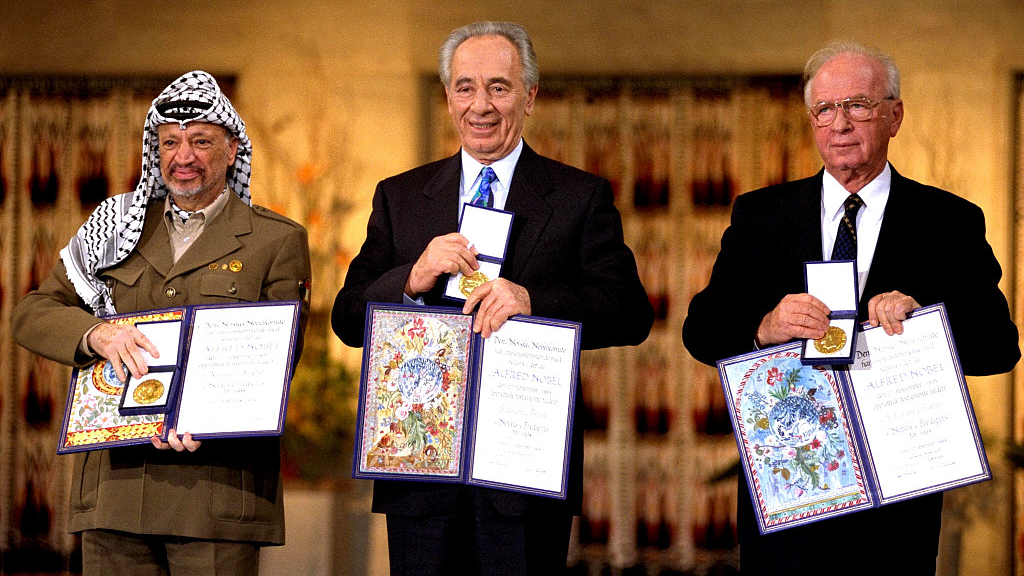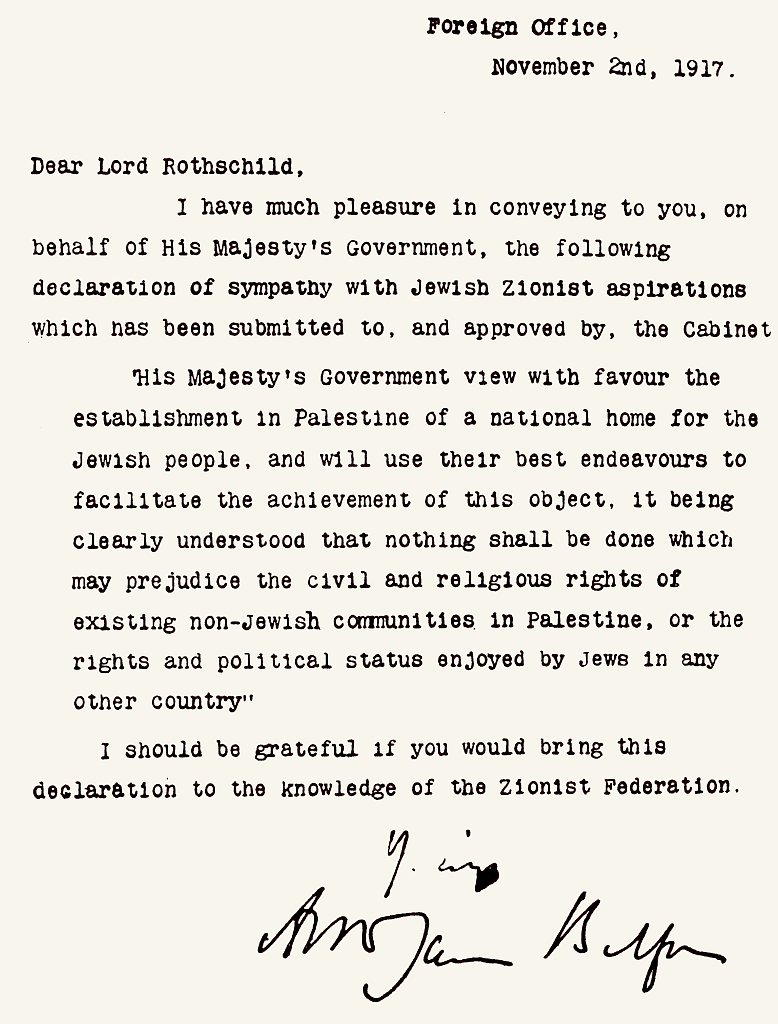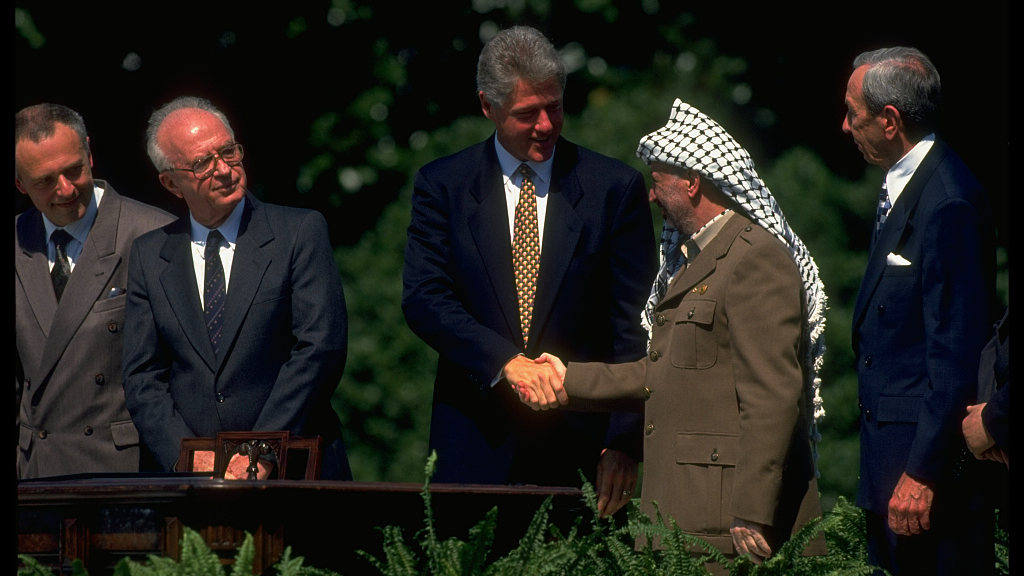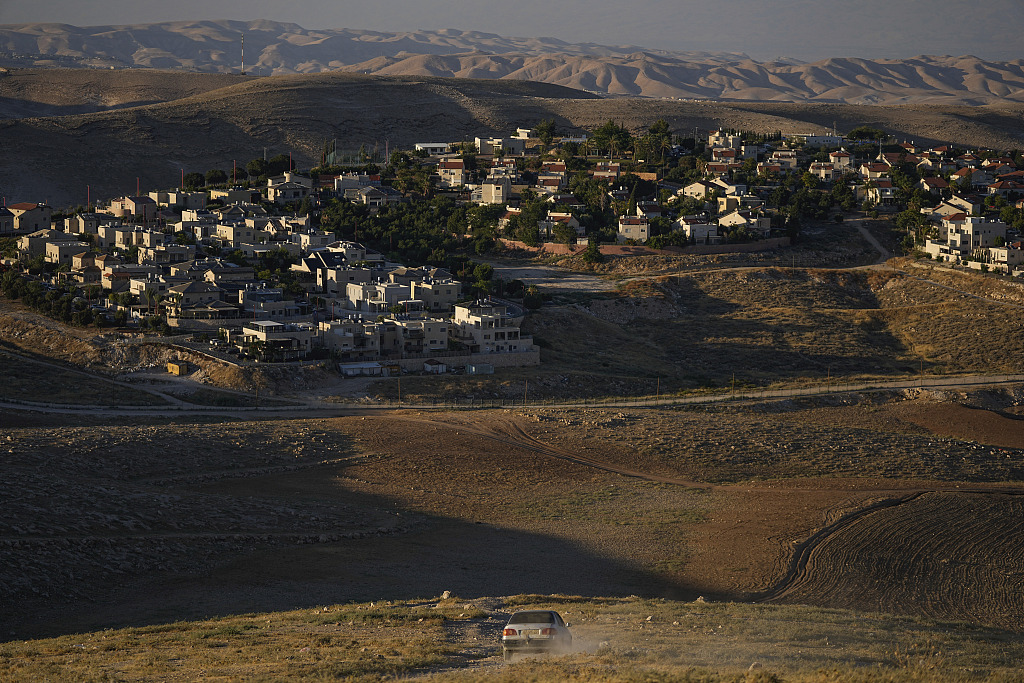At the culmination of a grueling series of talks in a cozy mansion in the Norwegian capital of Oslo in 1993, two delegations representing their respective authorities expressed a visible sense of relief as they clasped hands, marking the birth of a hard-won peace process aimed at resolving the Israeli-Palestinian conflict.
It had been a strenuous road, stonewalled by decades of conflict sowing hate and distrust, and so the conclusion of such an impactful agreement constituted a cause for celebration. Fast forward to today, most of what the accord set out to achieve has however failed to bear fruit.
The ongoing Gaza war, which broke out after Palestinian militant group Hamas launched a surprise attack on Israel last month, has revived discussions about peace between Israelis and Palestinians, an issue that had long been sidelined.
Oslo and the two-state solution
Known as the Oslo Accords – another agreement was signed in 1995 – they were crafted on the basis of envisioning an independent State of Palestine alongside Israel, commonly known as the two-state solution.

This handout from the Government Press Office shows (R-L) Israeli Prime Minister Yitzak Rabin, Israeli Foreign Minister Shimon Peres and Palestinian leasder Yaser Arafat, the joint Nobel Peace Prize winners for 1994, in Olso, Norway. /CFP
This handout from the Government Press Office shows (R-L) Israeli Prime Minister Yitzak Rabin, Israeli Foreign Minister Shimon Peres and Palestinian leasder Yaser Arafat, the joint Nobel Peace Prize winners for 1994, in Olso, Norway. /CFP
Replicating the land-for-peace formula of a peace treaty signed between Israel and Egypt in 1978, the accords devised a framework that would gradually return Israel's rule in the West Bank and the Gaza Strip to Palestinian self-governance, while affirming Israel's right to exist and the Palestinian Liberation Organization (PLO) as the representative of the Palestinian people.
These mutually agreed-upon terms appeared promising at the time, but over the years daunting obstacles have effectively derailed the peace process, and these obstacles can at least trace back to the late 1910s, when the Ottoman Empire was on the verge of collapse.
The United Kingdom, amidst the Allies' war against the Ottomans, announced its support in November 1917 for the establishment of a "national home for the Jewish people" in Palestine, then an Ottoman region with a small Jewish minority. This imperial meddling in a land mostly inhabited by Arabs contributed to escalating tensions between the Jewish and Palestinian residents during the subsequent British mandate period, ultimately leading to the imperative need for a two-state solution.

The Balfour Declaration, a letter from the United Kingdom's Foreign Secretary Arthur James Balfour. Dated 1917. /CFP
The Balfour Declaration, a letter from the United Kingdom's Foreign Secretary Arthur James Balfour. Dated 1917. /CFP
Throughout the decades between the two World Wars, clashes between the two groups ensued as waves of Jewish immigrants arrived in what they regarded as their sacred homeland. In 1947, as the British mandate over Palestine was drawing to a close, the United Nations adopted a resolution that divided the region into a Jewish state and an Arab state, marking the first legal realization of the two-state solution. Nevertheless, this proposal was met with rejection from the Arab side, and the following year witnessed the eruption of the first Arab-Israeli war, concluding with Israeli triumph and the capture of additional territory.
It was, however, not until the 1967 war when Israel seized the Gaza Strip and the West Bank from Egypt and Jordan, respectively. Meanwhile, many Palestinians were left fending for themselves, creating groups for their nationalist aspirations that would eventually be led by the PLO.
As the PLO fought persistently against Israel, an endeavor drawing international attention for their struggle, two developments - the PLO's alienation after it supported Iraq in the first Gulf War as well as widespread condemnations for Israel's rule in Gaza and the West Bank - led to the two sides' willingness to talk, and consequently the Oslo Accords.

(R-L) U.S. Secretary of State Warren Christopher, PLO Chairman Yasser Arafat, U.S. President Bill Clinton, Israeli Prime Minister Yitzhak Rabin at Israel/PLO peace accord signing, Washington D.C., September 13, 1993. /CFP
(R-L) U.S. Secretary of State Warren Christopher, PLO Chairman Yasser Arafat, U.S. President Bill Clinton, Israeli Prime Minister Yitzhak Rabin at Israel/PLO peace accord signing, Washington D.C., September 13, 1993. /CFP
Why it failed?
From their inception, the accords were not widely welcomed in the Palestinian territories, and were opposed by segments of the Israeli right, despite worldwide approval. Attacks initiated by radical Palestinian groups as well as right-wing Israeli leaders' intermittent refusal to collaborate with the PLO had fueled further distrust in the peace process.
The promise for Palestinian self-governance within a five-year timeframe was virtually led astray due to fluctuations in Israeli politics, while Israelis were growing more apprehensive about the PLO's ability to prevent violence against their country.
"Hamas attacks during the heyday of the Oslo Accords (1994-1996) undermined the Labor government under Yitzhak Rabin, and pushed many Israelis to the right," Meir Litvak, chair of the Department of Middle Eastern and African History at Tel Aviv University, told CGTN.

An Israeli soldier stands next to a Hamas propaganda poster, at an Israeli army base in Hebron, March 7, 1996. /CFP
An Israeli soldier stands next to a Hamas propaganda poster, at an Israeli army base in Hebron, March 7, 1996. /CFP
Rabin, who as prime minister signed the peace accords with PLO leader Yasser Arafat, was assassinated by an Israeli extremist in November 1995. In the meantime, Litvak said, continued settlement activity with the support of successive right-wing governments and the breakdown of the Camp David negotiations in 2000 contributed to the downfall of the peace process.
What constituted the fatal blow was Israeli opposition leader Ariel Sharon's provocative visit to the Temple Mount (otherwise known as Al-Aqsa Mosque, one of the holiest Muslim sites) in September 2000, setting off a massive Palestinian uprising known as the second Intifada.
"The cost of 1,200 Israeli lives (during the second Intifada) had decimated the moderates in Israel," Litvak said.
In the following years attempts to revive peace efforts proved fruitless, putting the Oslo process effectively to a halt.
Only option
Israelis and Palestinians living side by side in their sovereign countries is broadly seen as the only option to resolve the conflict. Other alternatives such as the one-state solution, which is rejected even by the Israelis as it undermines the Jewish character of their country, appear to be unrealistic.
"Multiple legal documents such as the UN Security Council Resolution 242, adopted in the aftermath of the 1967 war, and the Arab Peace Initiative were all based on the two-state solution, making it the only approach infused with fairness, legality and validity," Yu Guoqing, a research fellow at the Institute of West Asian and African Studies at Chinese Academy of Social Sciences, told CGTN. "It would be impossible to resolve the Israeli-Palestinian conflict if these principles were discarded."
Though the prospects for a Palestinian statehood seems now remote, the biggest impediment being the presence of over 100 Israeli settlements in the West Bank, some argue that the war in Gaza may have provided sufficient ground for a full revival of peace efforts.

A view of the Israeli settlement of Kedar, in the West Bank, June 26, 2023. /CFP
A view of the Israeli settlement of Kedar, in the West Bank, June 26, 2023. /CFP
"Ironically or tragically, the Gaza war may have revived the two-state prospect," Livak said. If Hamas suffers a significant blow from the Israelis, then a major radical force that opposes any compromise will be removed.
"It is likely that the U.S. will push towards resumption of the diplomatic process, and Israel will not be in a position to reject it," he added.
On the part of Israel, Yu said, it needs to seriously reflect on the consequences of the ongoing Gaza war, which he believes may lead to the emergence of rational politicians who will approach the Palestinian issue with a fresh perspective.






